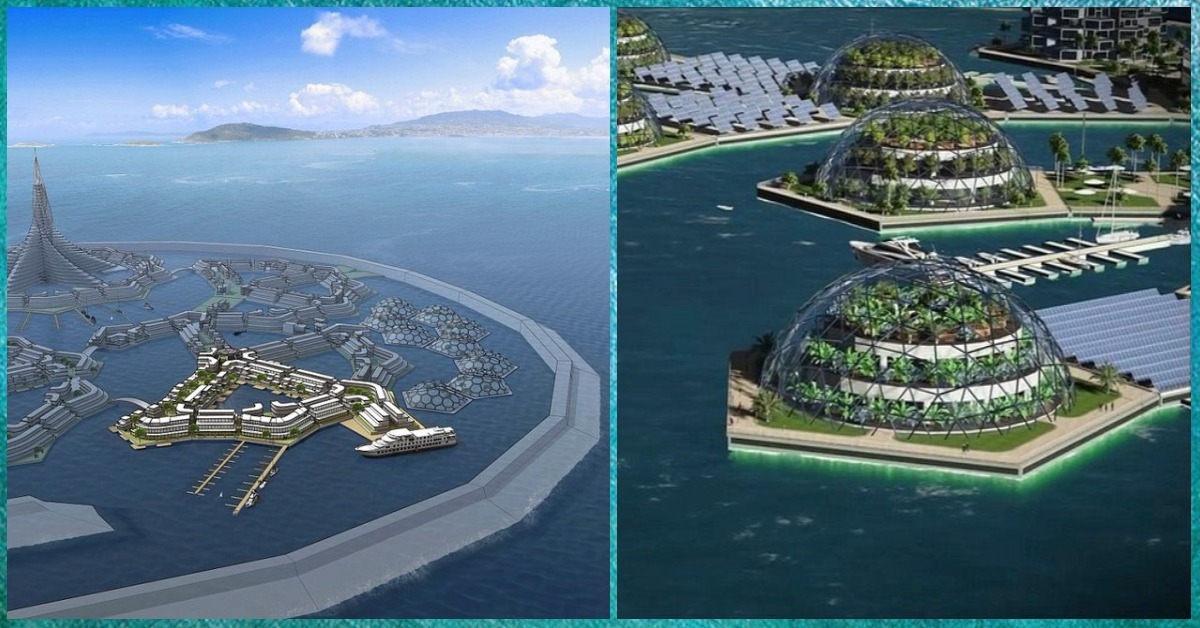
Remember the time when Steven Spielberg’s sci-fi hit Back To The Future predicted that the year 2015 will be the one where we would commute on hoverboards, own self-lacing Nike shoes, and even eat instant pizzas that are made in less than 30-seconds? As a huge fan of the trilogy, I was thrilled and beyond excited that I will be a fully-functioning adult in the year 2015 who’ll be flaunting her flying car’s driver’s license and wearing self-drying jackets.
Alas, 2015, though exciting, didn’t bring make all of my dreams come true, but we do have Tesla’s self-driven cars that have gotten us all in a tizzy. And come 2020, perhaps even a self-sufficient floating city will make an appearance, one that is already in the works!
Let the ‘fi’ in sci-fi take a back seat, as ‘seasteading’ – cities floating in international waters – independent, self-sustaining nation-states at sea – is looking a closer to reality than it was 50 years ago.
The Seasteading Institute, a San Francisco-based nonprofit organisation, has spent approximately a decade trying to convince the world that seasteading is not an idea based entirely on fiction.
According to a report by The New York Times, the French Polynesia government has given the green light to let the Seasteading Institute begin testing in its waters. Construction could officially begin soon, and the first floating buildings might be habitable in just a few years. The government is creating what is called a special economic zone for the institute to experiment in and has offered 100 acres of beachfront where the group can operate.
“If you could have a floating city, it would essentially be a start-up country,” said Joe Quirk, president of the Seasteading Institute. “We can create a huge diversity of governments for a huge diversity of people.”
The aim is to be able to build around a dozen of these floating structures by 2020, which would include hotels, homes, restaurants, and offices, at a cost of about $60 million. For the funding of the construction, the team is working on an initial coin offering. If everything goes according to plan, the structures will feature living roofs, and use materials such as local wood, bamboo and coconut fiber, and recycled metal and plastic.
“I want to see floating cities by 2050, thousands of them hopefully, each of them offering different ways of governance,” Mr Quirk said. “The more people moving among them, the more choices we’ll have and the more likely it is we can have peace, prosperity and innovation.”
Not to mention, with the sea levels rising around the world due to global warming, seasteading might even be the most plausible option for the future of humankind!
Would you ever want to live on the ocean and build your life in a floating city? Let us know!
Images: Bored Panda
Read More From Lifestyle
Queer Community Shares How They Came To Realise Their Sexualities & What It Meant To Do It In India
Manya Ailawadi
Rahul Rai: The Internet’s Emotional Support Boyfriend Who’s Giving Us All A Reason To Blush
Harshita Singh
A Ladies Stay-cation At Radisson Blu Plaza Delhi Airport May Be Exactly What You Need To Unwind
Manya Ailawadi